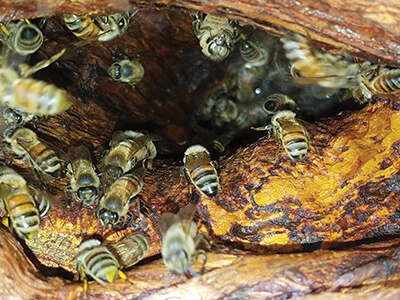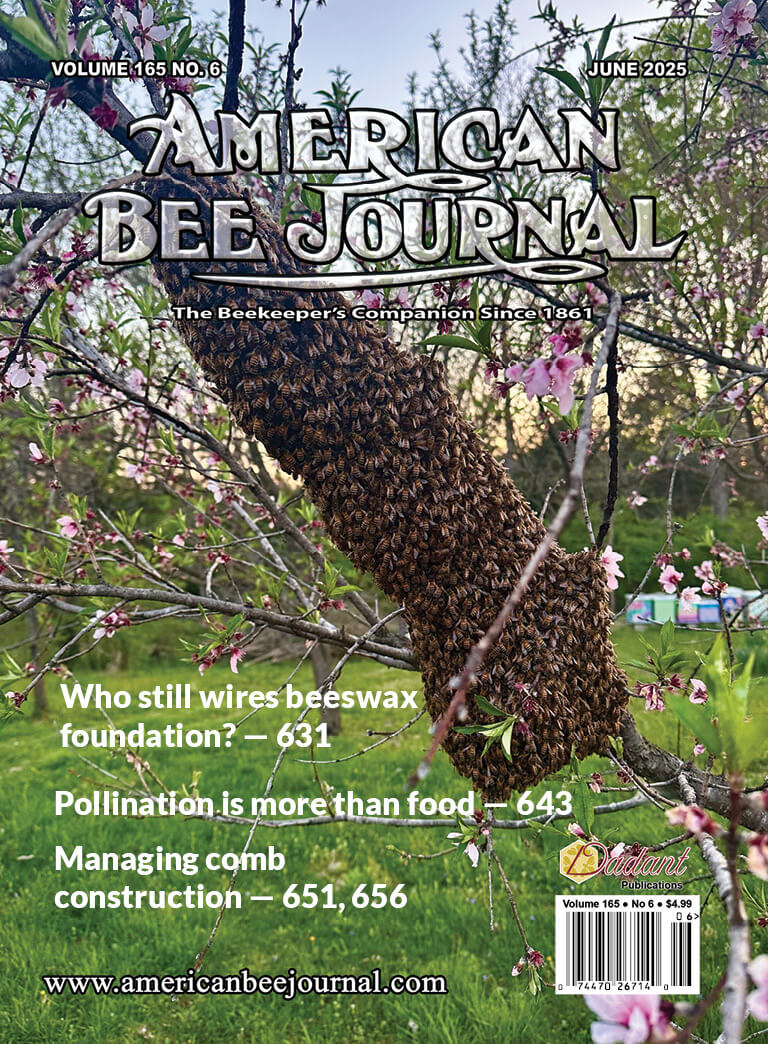
While there may be some fluffy white stuff on the ground outside your house right now, astute beekeepers know that spring is just around the corner. And each spring, I often hear two things from beekeepers regarding the new bees they hope to acquire: 1) they hope to catch a swarm from a feral colony, and 2) they hope their new queen was mated by many drones.
So what is it about feral colonies that’s so special? And why do we want promiscuous queens? These are the topics of our third “Notes from the Lab”, where we highlight “Higher immunocompetence is associated with higher genetic diversity in feral honey bee colonies (Apis mellifera)”, written by Margarita Lopez-Uribe and colleagues and published in the journal Conservation Genetics [18: 659-666 (2017)].
The authors collected foragers from 35 honey bee colonies (14 feral and 21 managed) in North Carolina and looked at their genetics and immunocompetence (essentially, how good they are at combatting disease). What they found was really interesting. The bees from feral colonies – the ones inhabiting tree cavities – were genetically different from the bees in managed hives, but the managed bees were genetically more diverse (i.e. the queens had mated with more drones). Yet despite being more genetically diverse, the bees from managed hives were less capable of mounting a good immune response when challenged with disease compared to the bees from feral colonies.
So the bees from feral colonies are different than the bees I manage in my hives?
Sort of. While the authors found they were slightly different, the magnitude of difference was small. In other words, drones and queens from the feral colonies are mating with each other, but they’re also mating a bit with the drones and queens from managed hives that are in your apiaries, and vice versa.
This interbreeding may be interesting to consider when choosing where to obtain your bees, whether it’s a package from Florida, your local nuc producer, or the swarm you find in your neighbor’s yard. It turns out some of the genes from your new bees are likely to spread into the feral bee population in your neighborhood, which in turn will be spread back into your hives when you make splits, etc. So choose your bees well if you care about having good genes in your neighborhood!
Promiscuous queens and genetic diversity… why should I care?
Some excellent work has been done on this topic over the past couple decades and it mostly boils down to this: When virgin queens go on their mating flight(s), they mate with ….


